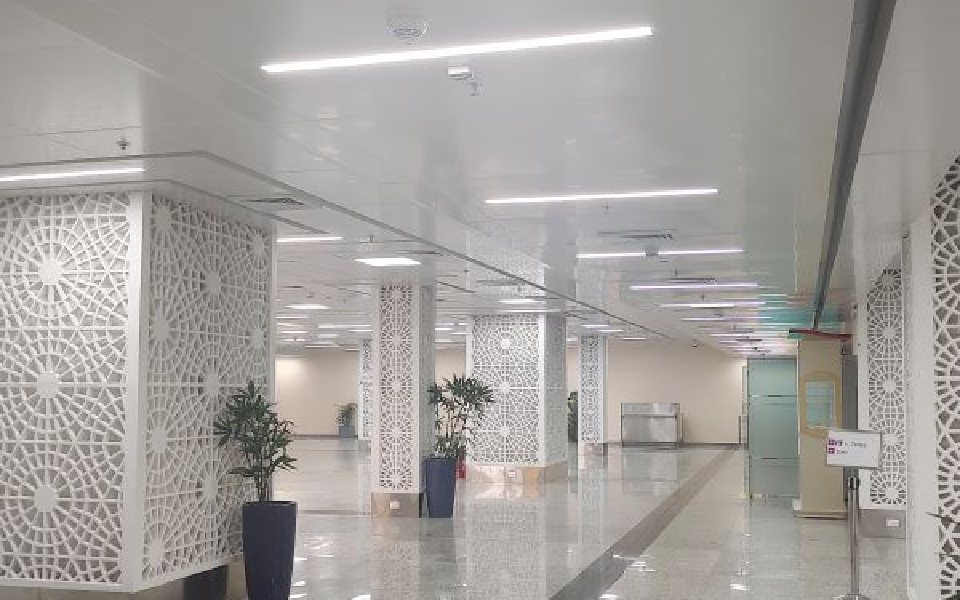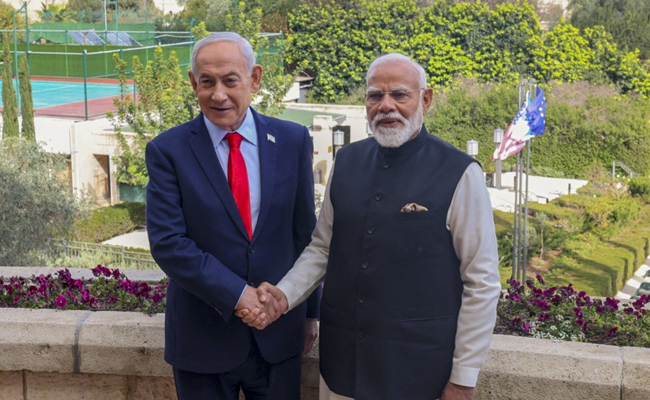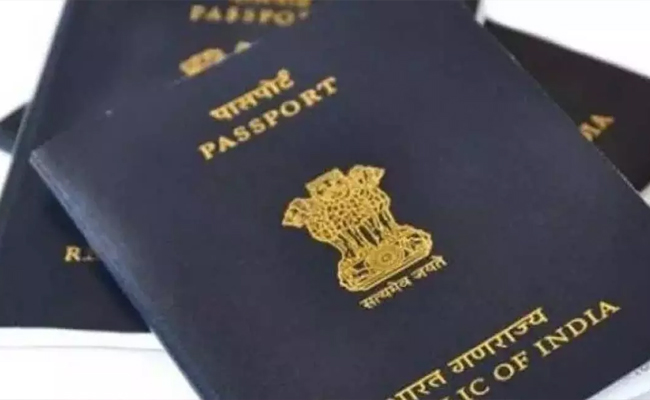Mangaluru, Jun 3: The Mangaluru International Airport (MIA) has switched over all its conventional lights to the energy-efficient lighting system in a phased manner, achieving yet another milestone ahead of the world environment day on June 5.
By replacing 1,111 conventional lights spread across various functional areas with as many LED lights, the airport has achieved 100 per cent conversion of lights with the new lighting system, a release from the MIA said on Saturday.
The changeover will help the airport overall save 188,558.96 kWH per year. The biggest saving will be seen in the National Air Traffic Services (NATS) building area where the airport will save 1.17-lakh kWH per annum using 752 LED lights.
In the new integrated terminal building, the MIA will save 56,467 kWH per year with 261 LED lights and 14,673 kWH per annum by changing the 98 conventional lights to LED lights in the airside, old terminal building and NATS area.
ALSO READ: Congress successfully implements promised guarantees, BJP left in disarray: Ramanath Rai
The switchover will help in the reduction of 148.962 tonne of CO2 emission per annum, including 92.761 tonne of CO2 in the NATS area. The emission of CO2 is primarily recognised as the primary driver of global climate change.
The airport has proactively gone in for a controlled lighting system, enabling it to switch off lights wherever not required. The use of timers too ensures that the street lights are switched on at specified times, the release said.
Let the Truth be known. If you read VB and like VB, please be a VB Supporter and Help us deliver the Truth to one and all.
Jerusalem (PTI): India and Israel on Thursday elevated their "time-tested" relationship to a special strategic partnership and agreed to soon firm up a "mutually beneficial" free trade deal even as Prime Minister Narendra Modi strongly backed the Gaza peace initiative, asserting that humanity must never become a victim of conflict.
Following talks between Modi and his Israeli counterpart Benjamin Netanyahu, the two sides inked a plethora of agreements to expand cooperation in areas of trade, agriculture, energy, cyberspace and digital payment.
India and Israel also vowed to expand their already close defence partnership by working towards joint development and joint production of military hardware under the framework of the transfer of technologies.
In his media statement, Modi said India's security interest is linked to peace and stability in the Middle East, adding that New Delhi fully supports the Gaza Peace Initiative.
"India's stance is clear: humanity must never become a victim of conflict. A path to peace has been created through the Gaza Peace Plan. India has fully supported these efforts," he said.
"In the future as well, we will continue dialogue and cooperation with all countries," he said.
PM Modi landed in Israel on Wednesday on a two-day visit. It is his second visit to Israel in nine years.
In his remarks, the prime minister said India and Israel have a united view that there is no place for terrorism in the world and both sides stand shoulder-to-shoulder in countering terrorism and its supporters.
"Our relationship is founded on the strong bedrock of deep trust, shared democratic values, and human sensitivities. Our bond has stood the test of every trial of time," he said.
"Today, we have taken the historic decision to elevate our time-tested partnership to the status of a 'Special Strategic Partnership'," he said.
The prime minister also announced the establishment of an India-Israel critical and emerging technologies partnership to impart a new momentum for cooperation in areas of artificial intelligence, quantum, and critical minerals. "I am pleased that an agreement has been reached for the use of UPI in Israel," he said.
The prime minister, referring to the threat of terrorism, said India and Israel will continue to confront the menace unitedly.
"India and Israel are completely clear that there is no place for terrorism in the world. In any form, in any expression, terrorism cannot be accepted," he said.
"We have stood shoulder-to-shoulder in opposing terrorism and its supporters, and we will continue to do so," he added.
India and Israel also discussed the implementation of the India-Middle East Europe Economic Corridor (IMEC) and cooperation under the framework of I2U2 (India-Israel-UAE-USA).





